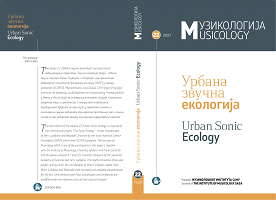From Pain to Pleasure: The Troping of Elegy in the Renaissance Italian Madrigal
From Pain to Pleasure: The Troping of Elegy in the Renaissance Italian Madrigal
Author(s): Milena MedićSubject(s): Cultural history, Music, Aesthetics, Sociology of Art, History of Art
Published by: Muzikološki institut SANU
Keywords: renaissance; melancholia; elegy; madrigal; troping; transcendence of death;
Summary/Abstract: In the Renaissance period, melancholia emerged as a dramatic cultural phenomenon among the intellectual and artistic elites, with a locus in elegy it gave form to the Renaissance poetics of loss, pain and shedding of tears, expressing essentially the fantasy about death as a prerequisite for revival. Te possibilities of confronting the threats of death were being found in its very nature whose inherent ambiguity was determined by the principles of Tanatos and Eros. Te creative act of the troping of elegy proved to be an efective literary and musical strategy for the transcendence of death including the procedures of homeopathization, pastoralization, heroization and erotization of elegy. Te elegiac tropic transcendence of death found its most complex expression in the madrigal which in turn added to its basic polyphonic procedure the opposing stylistic elements of the pastoral genres (canzonetas and villanellas) or heroic solo or choral recitations and it consequently acquired a hybrid form in the last decades of the 16th century, and thereby proved to be a cultural trope itself. Te aim of this article is to examine the musical implications of the tropic strategies of facing death within Francesco Petrarch’s, Torquato Tasso’s, and Batista Gurini’s poetic models of the art of loving death, using the remarkable examples of the Italian madrigal practice of the late Renaissance.
Journal: Muzikologija
- Issue Year: 1/2017
- Issue No: 22
- Page Range: 151-175
- Page Count: 25
- Language: English

